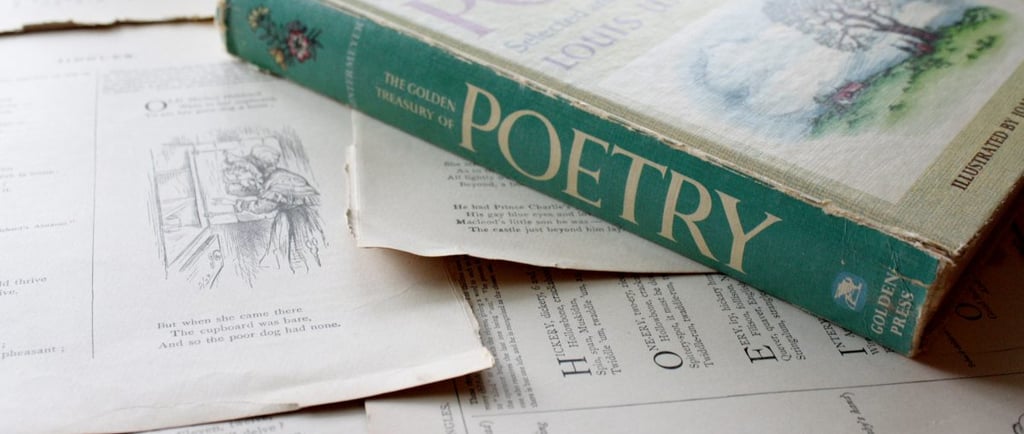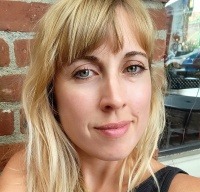MAPS
ALM No.75, May 2025
POETRY


Maps
Growing up I loved maps—X Marks the spot,
dotted lines on old parchment leading
through jungle, lagoon, and desert.
I loved boundaries, the distinguishing line
between two things. Much of life is like reading a map anyway—
navigating between choices or deciphering music,
notes climbing steeply between sharps and flats.
New things are first like hieroglyphs.
It takes the brain so long to right itself. To write itself.
Growing up, I loved ships too.
I wanted to feel the slow drift of water.
A ship’s slow crawl over the sea.
Maybe this is why I can't navigate the endless days,
the nameless territories, no landmarks
to show me where I am.
No dotted lines like fire ants. No indelible X.
No words to carry me like a raft from this place.
No one to tell me what I am searching for.
I don't think in countries, steps, or miles.
I think in dotted lines, glass bottles.
A black flag crisscrossed with skull and bones.
Circuits without starlight. Paper sunrises.
My fate flat and crinkled between my hands.
Names
My sister is named after a villain—
Natasha from Rocky and Bullwinkle.
I remember the gaunt, pale face
and the eyebrows like two bats.
I was named after someone I never met—
my great-great-great uncle’s wife.
Every name has a story, and the more
I tell mine, the less I know why it matters.
Sometimes when I introduce myself,
my interlocutor says, Esther was a queen.
I know the story, but I don't know what any of it means.
I was named after my uncle’s sobs into the phone.
The need to perpetuate the name of his deceased wife.
Years later, at his funeral, I was walking through the room
and was suddenly surrounded by a solemn wreath
of faces, asking me for my name.
Like I had somehow forgotten who I was.
Maybe names don’t matter much.
What matters is what you respond to.
I respond to wind chimes,
the dark sky tinged a smoky red.
A sky full-bellied with future snow.
I don't remember much about
the Rocky and Bullwinkle show—
a moose with giant antlers, a flying gray squirrel.
Watching television with my sister,
my mother would call to us.
I always came when called.
I’d come to my sister’s name or mine
because when my mother called
one of us, she meant both of us.
Anyway, I always knew what she meant.
My sister bear crawls through the basement crawl space
I've never seen her move so fast, searching for old photos and knick knacks.
All I see is dust and cobwebs. Even the clipboard from my old classroom
is covered in downy gray tufts. She is looking for something particular,
though I don't know what it is. She finds an old photo album
with a picture of herself riding a horse, her helmet straps unclipped.
She finds a picture of our old dog, a picture of my father holding our bunny.
The rabbit looks surprisingly large. My father looks surprisingly young.
Maybe he is as old as I am now. My sister sifts through box after box,
picking out photos and books. She says she will take them all home.
My father pretends to wiggle his nose in imitation of our old bunny.
A rabbit is a lagomorph and not a rodent, he used to say and he repeats it now.
My father would imitate the rabbit’s skull and teeth with his hands—
two top incisors and peg teeth below. I want to believe that
my childhood is the only childhood. Our basement the only basement.
It will always be here. Time, like a single stream, flows from the rabbit’s hutch,
to our old backyard, to our basement now, where my sister is lumbering
through the crawl space with frames in her hands. My father is making
his nose tremble. He almost goes cross-eyed, pretending to munch
on carrots and lettuce. My sister crawls past again clasping her findings,
the way my father cups his hands to form a makeshift bunny
nibbling grass. My sister is searching as quickly as she can,
as if she's looking for her own face, her own two hands.
In the backyard in Connecticut, I searched for bones
I told myself the stonewall was stacked by people
who lived there generations ago. I wanted to believe in secrets.
I thought the stones could move, could whisper.
I wanted to believe in magic. I listened to the trees for whispers.
I craved stillness, to be a sight unseen.
To touch trees and leave fingerprints spread on bark.
I thought each step and handprint left a mark.
I still think I can change a place or be changed by one.
Looking at the rust-red brush along the street,
I think of beginnings. I think of how sparse the trees,
how thin the road. I think of the ability to predict—
that a red stone means blood on the horizon,
that a sky flaring full and pink means fortune.
I've always wanted to have a vision that slices through time.
I clasp my hands together, two hands grasping like a fossil.
A pleading older than time itself. Red brush means spring.
Red brush means horizons open at the end of everything.
My mother extols the virtues of computers
She’s been saying it for years:
You have to study computers,
though recently she says it less,
seeing how no one seems to listen.
When she says this, I think of wires and a box,
mysterious coils and circuits inside.
Studying computers is what other people do.
My mother asks the parents of her piano students
to fix her stereo system, her Alexa, my father's printer,
though sometimes she YouTubes it herself.
When I Youtube how to insert batteries
into her new television remote, my mother says
See? We can figure out anything and she’s right.
She smiles vindicated after all those years—
of course, I was choosing not to figure things out:
how to work the powerwash,
how to unjam the windowpane,
how to replace a loose flapper.
Computers she insists. Computers.
As if computer were a secret name
for everything I refuse to understand.
Esther Sadoff is a teacher and writer from Columbus, Ohio. She is the author of four chapbooks: Some Wild Woman (Finishing Line Press), Serendipity in France (Finishing Line Press), Dear Silence (Kelsay Books), and If I Hold My Breath (Bottlecap Press). She was nominated for a Pushcart Prize by Hole in the Head Review.

